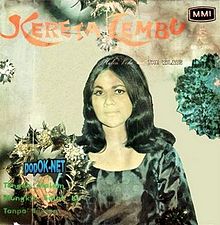Of late, there have been talks of the need for sermons to be apolitical. Just like civil servants, they should just ease day to day living, not to have any political inclinations, so they say. Scripted Fridays khutbah and Sunday morning sermons are a no no.
Just the other day, one of the buddies in the gang of 5 was proposing the idea that religion is indeed a big political party by itself. It toes the line of how one should think and behave in society. It outlines the high priests / scriptures ordained socially acceptable way of living. When man reaches crossroads or is at a dead-end, unable to continue their next plan of action or their 'Plan B', religion provides solace to the heart wrenching broken heart moment. People just get awed by the bigger than life powers of Divinity.
For the social outcasts, they are received with open arms with no obligation (so it seems), giving them dignity and strength until they can fly again or be an eternal humble servant of God or the 'holier than thou' holy high priests who seem to hold the key to the secrets of life but they sometimes fall prey to pleasure of the flesh. (That is not their fault! Satan lurks everywhere to ignite the spark of negativity in the good work of the servants of the Lord).
 At the outset, they appear ever understanding to your plight. They go out of their way bending backwards to help you, then they impose their ideology and regulations.
At the outset, they appear ever understanding to your plight. They go out of their way bending backwards to help you, then they impose their ideology and regulations.
Of course, to continue all these humanitarian work, money is of essence. A fish net will passed around to collect more catches. And the catch would feed more than is needed. What the heck, more dough means more cloud on Earth to continue divine work and bulldoze their ideas in subtle ways. After all more people will hang on to strong branch when they about to fall. More money, more authority in this God created world.
So, religion is politics and politics is religion.
http://religion.lilithezine.com/The-Politics-of-Religion.html
Just the other day, one of the buddies in the gang of 5 was proposing the idea that religion is indeed a big political party by itself. It toes the line of how one should think and behave in society. It outlines the high priests / scriptures ordained socially acceptable way of living. When man reaches crossroads or is at a dead-end, unable to continue their next plan of action or their 'Plan B', religion provides solace to the heart wrenching broken heart moment. People just get awed by the bigger than life powers of Divinity.
For the social outcasts, they are received with open arms with no obligation (so it seems), giving them dignity and strength until they can fly again or be an eternal humble servant of God or the 'holier than thou' holy high priests who seem to hold the key to the secrets of life but they sometimes fall prey to pleasure of the flesh. (That is not their fault! Satan lurks everywhere to ignite the spark of negativity in the good work of the servants of the Lord).
Of course, to continue all these humanitarian work, money is of essence. A fish net will passed around to collect more catches. And the catch would feed more than is needed. What the heck, more dough means more cloud on Earth to continue divine work and bulldoze their ideas in subtle ways. After all more people will hang on to strong branch when they about to fall. More money, more authority in this God created world.
So, religion is politics and politics is religion.
http://religion.lilithezine.com/The-Politics-of-Religion.html





















